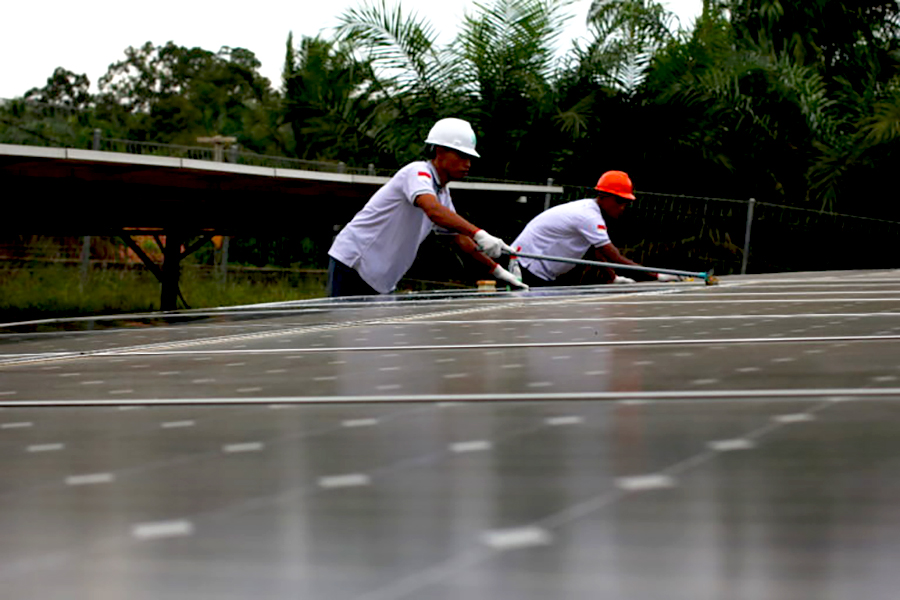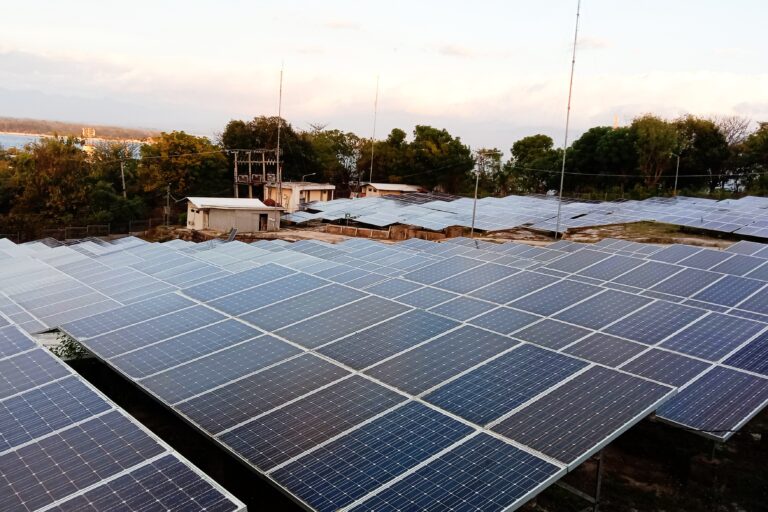- Women are the main providers of energy needs in the household. Women are also the searchers of alternative energy sources, when energy shortages occur.
- However, in the context of energy, women have only been positioned as consumers to fulfill their daily needs or the domestic sphere.
- In the context of renewable energy, women have the role of cultivating fuel to replace oil with energy sources such as solar [sun], water, wind, biomass and biofuels derived from agricultural and forest products.
- As long as the energy transition paradigm only boosts economic growth, women and vulnerable groups are still marginalized.
Women are the main providers of energy needs in the household. Women are also the searchers of alternative energy sources, when energy shortages occur.
However, in the context of energy, so far women have only been positioned as consumers to meet their daily needs or the domestic sphere.
“Energy is not considered knowledge, so women are interpreted as not understanding or unable to contribute ideas in energy governance,” explained Mike Verawati, Coordinator of Public Policy Reform Workers cum Secretary General of the Indonesian Women’s Coalition, in the event “The Fate of Women in the Energy Transition Frame” on Thursday [7/3/2024].
Mike assessed that poverty among women is increasingly visible because the energy policy does not have a gender perspective. As a result, women are increasingly distant from energy issues.
“In the context of renewable energy, women have a role in cultivating fuel substitutes for oil with energy sources such as solar [sun], water, wind, biomass and biofuels derived from agricultural and forest products.”
Women in three regions, Halmahera, Salatiga, and Kepulauan Seribu, choose not to use LPG, in addition to its frequent disappearance in the market and high price. In fact, almost all housewives in these rural areas use firewood as a substitute for energy.
“They do not have access to renewable energy technology. They may understand new energy sources but lack knowledge or technical skills.”
The Women’s Coalition recommends, first, the existence of a gender equality, disability, and social inclusion [GEDSI] analysis framework in energy policy and governance in Indonesia. Second, organizing, especially marginalized/vulnerable groups, to voice their rights to sustainable clean energy. Third, strengthening and accelerating development in the energy sector by placing gender specialists in energy programs.
“As long as the energy transition paradigm only boosts economic growth, women and vulnerable groups are still marginalized,” said Mike.

Women’s participation must be guaranteed
R. Mouna Wasef, Head of Division Research & Advocacy Publish What You Pay [PWYP] Indonesia, said that women’s participation must be guaranteed in overseeing the energy transition. This is contained in the Enhanced Nationally Determined Contribution [NDC] 2021.
“This commitment is to reduce emissions by ensuring the participation of stakeholders such as the private sector, civil society, vulnerable groups, women, indigenous peoples or customary law communities, and local communities, both in the planning and implementation stages.”
The next guarantee in the G20’s Bali Energy Transition Roadmap is community engagement and gender equality along with behavioral and quality of life aspects.
Guarantees are also contained in the Comprehensive Investment and Policy Plan Just Energy Transition Partnership Indonesia [CIPP JETP] 2023. The CIPP is a strategy document that the Government of Indonesia will use as the basis for planning and policy-making for the JETP framework.
There are two natural pillars of the just transition framework. First, Leave No One Behind. Second, sustainability and resilience.
“The foundations of both pillars are human rights, gender equality and community empowerment, and accountability,” she said.
Mona proposed that the equitable energy transition community has the principle of increasing the capacity of women and other vulnerable groups, around the energy transition project. Also, there is gender budget tagging for women’s groups at the site level.

The gender factor
Chandra Sugarda, Senior Gender, Disability, and Social Inclusion [GEDSI] Advisor, said there are three major implications in the energy transition process. First, the energy system, namely the implications of early retirement of coal-fired power plants on the physical or existing energy system. Second, fostering new economic activity in affected locations. Third, socio-cultural, the possibility of an affected workforce, such as the emergence of new migration and health issues.
In Indonesia, gender mainstreaming [PUG] is not new and has been implemented in the context of energy transition. However, when viewed in government, decision-making is still dominated by men.
“Although the overall composition of the state civil apparatus is slightly more women, men dominate at the decision level. Including, in the energy transition sector. Based on the State Civil Service Agency 2023, for example in the Ministry of Energy and Mineral Resources, female leadership is only around 10%,” she said.
According to Chandra, in terms of policies, mechanisms, and tools for gender mainstreaming, it is actually complete and there are even gender-responsive climate change budget guidelines at the Ministry of Finance.
“However, the implementation, including the energy transition, is still diverse.”
Chandra recommends that the government do the following:
- Develop policies that promote GEDSI in energy transition and new renewable energy.
- Encourage the participation of women and vulnerable groups in decision-making processes and encourage diversity in leadership positions.’
- Provide vocational training to underrepresented groups in the energy sector.
- Implement non-discriminatory hiring practices in the energy sector and support equal pay and career advancement initiatives.
- Engage with local communities affected by energy projects, ensuring the benefits of renewable energy and energy transition projects are equitably distributed.
- Conduct GEDSI disaggregated data collection to analyze gaps.
- Promote the development of EBT technologies that are accessible and beneficial for all.
- Encourage collaboration of all stakeholders for mainstreaming GEDSI.
- Provide women and vulnerable groups access to energy transition project financing.
“Finally, it is necessary to periodically evaluate the impact of the GEDSI initiative and encourage a culture of continuous improvement so that GEDSI becomes an energy transition priority,” she explained.
Source: Mongabay